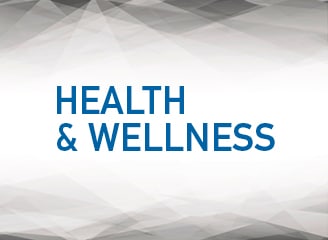Gerhart pledges prompt action on CoOportunity

Iowa Insurance Commissioner Nick Gerhart said Wednesday he expects to reach a decision soon on whether CoOportunity Health will be liquidated.
“My hope is we’re going to be able to make a decision in the next week or two at the latest on what we’re going to do,” Gerhart told the Business Record in a phone interview on Jan. 7.
The Iowa Insurance Division has been assessing the financial situation of the West Des Moines-based health insurer for the past two weeks since taking control of the company’s assets and operations on Dec. 23. The nonprofit cooperative health insurer, which began offering policies in Iowa and Nebraska in October 2013, ran into a significant liquidity crisis last month that prompted Gerhart’s action to take over the insurer, in a process known as rehabilitation.
Gerhart said he expects within about two weeks to be able to issue an Assessment of Viability for CoOportunity. If liquidation is recommended, he would then file a petition with the Iowa District Court that would put into motion the process for insurance guaranty funds in Iowa and Nebraska to step in. The bulk of CoOportunity members are Nebraskans, but about 26,500 Iowans also have coverage through the insurer.
“Right now the preliminary assessment is (CoOportunity has) way too many members,”Gerhart said. As of Jan. 2, the health insurer had approximately 108,000 members, down from about 120,000 when the order for rehabilitation was granted. Gerhart noted that CoOportunity had only about $17.2 million in cash and assets on hand as of mid-December.
“The path to viability would take a significant amount of capital, and we have been informed there is no more capital coming from (the Centers for Medicare and Medicaid Services).” he said.
The rehabilitation order for CoOportunity was spurred by financial concerns arising from insufficient capitalization, the lack of availability of additional capital from the Centers for Medicare and Medicaid Services and the delay of federal payments for risk mitigation programs until the second half of 2015. These issues, combined with higher than anticipated healthcare use, caused a cash crunch for the company.
The division has advised individuals and groups insured by CoOportunity that it’s probably in their best interest to secure coverage with other companies, but to continue to pay their CoOportunity premium to maintain their coverage until their new coverage goes into effect.
Approximately 16,000 Iowans currently have group coverage through their employers with CoOportunity, and those companies are now scrambling to change their coverage prior to Jan. 15 for coverage that will be effective Feb. 1.
If there is a liquidation, those groups will have just 45 days to secure new coverage, Gerhart said, which is why the division advised seeking other coverage. Individuals enrolled with the carrier theoretically could maintain their coverage through 2015, but would face limited benefits payouts and possibly forego federal health care subsidies and tax benefits as a result, he said.
Gerhart emphasized that CoOportunity members need to continue to pay their premiums as usual in order to be protected during the rehabilitation process and potential liquidation. He said he has received calls this week from some groups as well as individuals who panicked and cancelled their coverage.
“We did what we did to ensure that Iowans and Nebraskans still have coverage,” he said, noting that there is a process to reinstate coverage for those people. “Even if this moves to a liquidiation, they will still have time to make a change.”
Likewise, health care providers will continue to be paid and should accept coverage from valid CoOportunity members, he said. “Even if we move to liquidation, we will have protection through the liquidation fund to pay claims. So doctors should accept CoOportunity claims, because they will be covered.”
If there is a liquidation, all the health insurers in the state would be assessed a portion of the estimated liquidation cost, based on their market share.
Approximately 20 insurers would be assessed, but Wellmark Blue Cross and Blue Shield and a handful of the other largest carriers in the state would pick up the bulk of the tab.
The total amount to be assessed carriers in the two states by Iowa’s and Nebraska’s guaranty funds would be an educated guess based on CoOportunity’s current financials and current enrollment,” Gerhart said.








